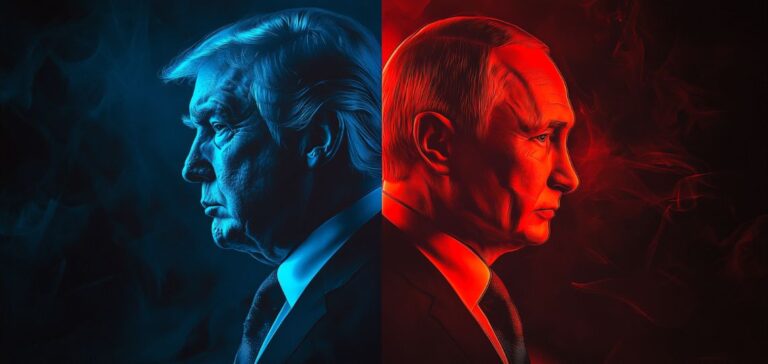Negotiations over Ukraine are intensifying as Donald Trump, Vladimir Putin, and Volodymyr Zelensky play their cards in a game where economics and politics are deeply intertwined. Discussions extend beyond military advances or territorial claims: oil and energy strategy have become central to the debates.
Oil at the Heart of the Discussions
At the World Economic Forum in Davos, Donald Trump proposed a strategy to lower oil prices to weaken Russia’s economic position. According to him, lower prices “would immediately end the conflict in Ukraine.” This statement, though striking, raises doubts in financial circles: a prolonged drop in prices could also weaken U.S. producers.
Vladimir Putin, for his part, disputed this approach, emphasizing the strategic importance of hydrocarbons for Western economies. Russia, which has diversified its energy exports to Asia, could cushion the impact of such a measure, though it might reduce revenues in the short term.
Ukraine Facing Complex Diplomacy
In Kyiv, President Volodymyr Zelensky expressed skepticism about negotiations conducted without Ukraine’s direct involvement. The Ukrainian administration fears that bilateral talks between Washington and Moscow could weaken its position, especially in a military context marked by Russian advances in the Donetsk region.
Ukraine’s main goal remains clear: to secure solid security guarantees from the U.S. and Europeans before any dialogue with the Kremlin. However, Trump’s recent statement claiming that Kyiv is “ready to negotiate” has created uncertainty about the true U.S. stance in this dynamic.
Tensions on the Ground and Military Escalation
While diplomatic actors exchange statements, the military situation on the ground remains tense. Russia has claimed new strategic territorial gains, while Ukraine continues to carry out targeted strikes on critical infrastructure in Russian territory.
This escalation demonstrates that, despite ambitions for dialogue, war remains a tool of leverage for both sides. Moscow seeks to consolidate its territorial gains, while Kyiv aims to sustain Western support by proving its resilience.
Energy Diplomacy Under Pressure
The role of hydrocarbons in this conflict goes beyond simple commercial transactions. For Russia, oil and gas remain key geopolitical instruments, as international sanctions have not fully curtailed its revenues. Meanwhile, the West continues to debate strategies to limit these financial flows without jeopardizing its own economies.
Trump’s remarks about reducing oil prices show that energy diplomacy remains a crucial yet challenging lever. Any initiative in this direction will require consensus among major economic powers, which seems difficult to achieve in such a polarized context.






















